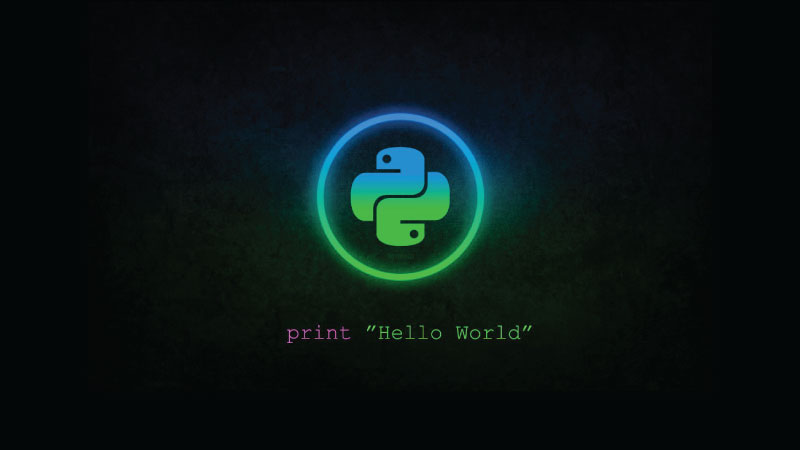
Everyone is talking about Python for a good reason. The future of technology will revolve around machine learning, data science, Artificial Intelligence, and more, yet Python is the programming language that is hugely opens to this future. It is highly in demand, and the biggest brands in the world like Spotify, Facebook, DropBox, and Netflix run on it.
A recent study by Stack Overflow revealed that Python overtook Java and C++ to become the most popular programming language globally. While the community of Python users keeps growing daily, what could be the reasons to learn this language?
1. It is Beginner-Friendly
Getting started in programming can be difficult and intimidating. Codes may look daunting at first, especially if you are accustomed to English statements only. If you are new to coding, Python sets a foundation that makes it easy to grasp the general concept of programming.
Python features concise English syntax that's easy to read and write. First-time coders find it easier to use than other languages because it was developed to remove complex programming concepts and keep the necessary ones.
Being an interpreted programming language, Python is perfect for beginners. This means you can run a line of code immediately after you write it and make adjustments if it doesn't work. Even kids can learn Python programming fast since, unlike other languages, simple programs like 'Hello World' takes only one line of code to write.
2. Python is the Fastest-Growing Language
Due to its usefulness in different data science fields such as data modeling and AI, the growth of Python has witnessed a huge spike over the past few years, and it is not likely to stop anytime soon.
In 2020, TIOBE recognized Python as the 2020 Programming Language of the Year because it gained popularity more rapidly than other languages. It has also become the most-searched language on the web for the past few years. Learning Python will position you at the forefront of data science. It is the fastest-growing field in engineering, and you do not want to be left behind in a revolution towards a future of machine language and AI.
3. Python is Versatile
When it comes down to versatility, diversity, and flexibility, the Python language is unmatched. Once you learn it, you can apply your skills across different environments in AI, machine learning, mobile app development, software engineering, and data science.
Python is also versatile such that it can run with other programming languages. For instance, Jython is an integration language from Java and Python, while CPython is Python invoked with C Programming. Python also functions properly across various platforms. Whether it is a Linux, Windows, or macOS device that you operate on, you can start learning and practicing Python right away.
4. Python Developers Roles Are in High Demand
Roles for Python programmers are highly lucrative and marketable compared to other programming languages because most big companies use it to run their operations. They ranked #2 based on total programming jobs posted on LinkedIn in 2020 in the US alone.
Indeed.us ranks Python developers as the fourth most paid after Ruby, C++, and JavaScript developers. They also stand better chances of getting hired with little experience as they can apply their skills across multiple areas.
5. Python Has an Active Online Community
Learning is both endless and collective in programming. One of the best learning resources you will ever find as a Python developer is its supportive online community. You will learn a lot from various online forums, the open-source community, and local meet-ups with fellow programmers.
For instance, there is a question-and-answer platform known as StackOverflow where developers ask questions when stuck or share knowledge with other members. Over one million users tag Python in their questions, showing how active and robust its community is. Python also has the second-largest community on GitHub. GitHub is a platform with more than 1.5 million stock files, and it allows developers to keep their project codes and work together with other developers.
6. Python is Great for Testing Frameworks
Established companies use Python to validate their ideas and products. It has many built-in testing frameworks to speed up workflows and cover debugging, making it the perfect language for simplifying tasks.
Developers understand that web testing is never easy, so testers need to learn Python to make everything easier. It is good that Python works across different platforms and browsers and supports essential frameworks and tools such as Pytest, Splinter, and Selenium.
To conclude, learning Python or teaching your kids could be one of the most crucial decisions in your life or of your kid. The future of data science is hugely dependent on Python - so it is better to put your best foot forward by learning it now.